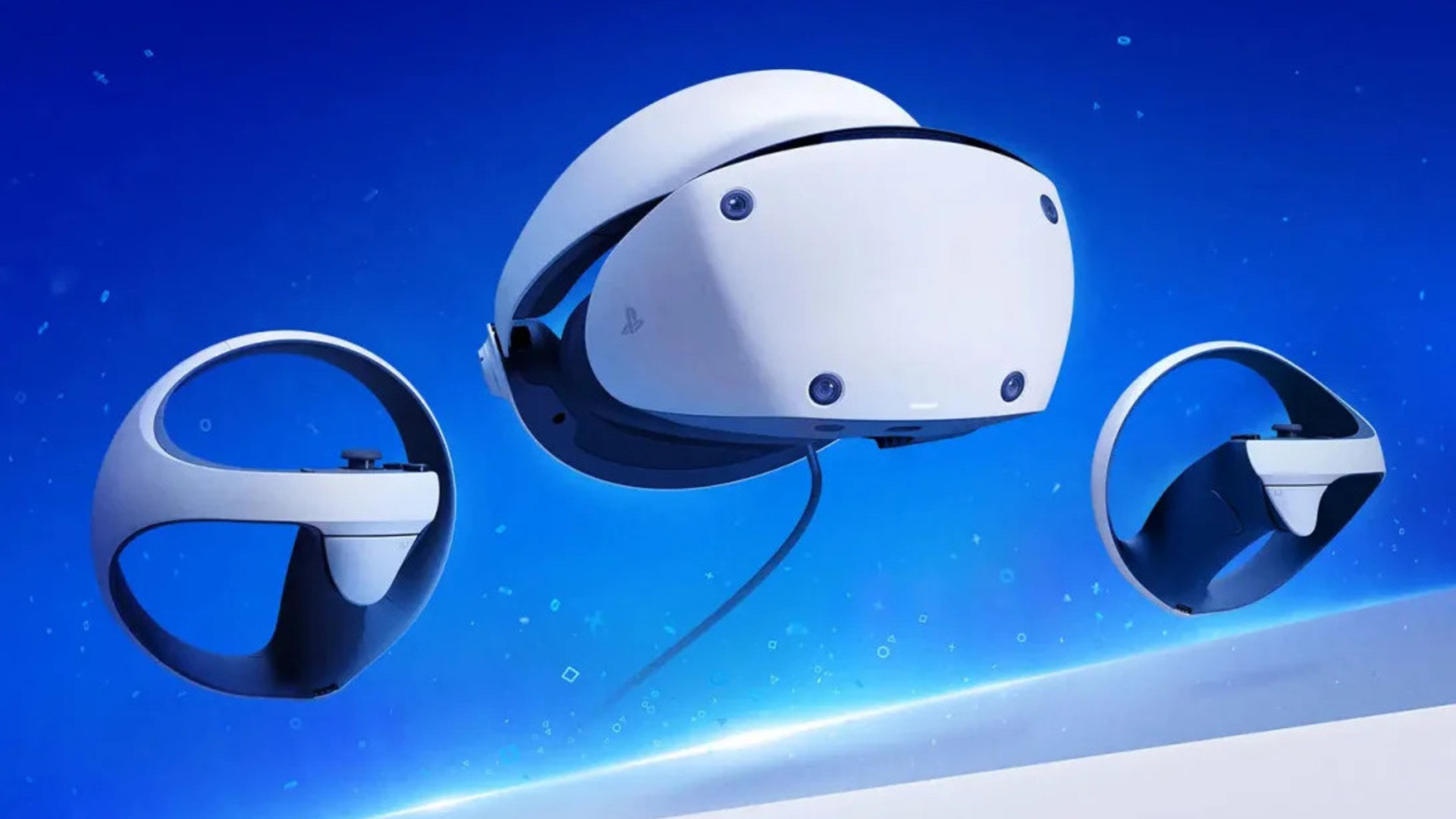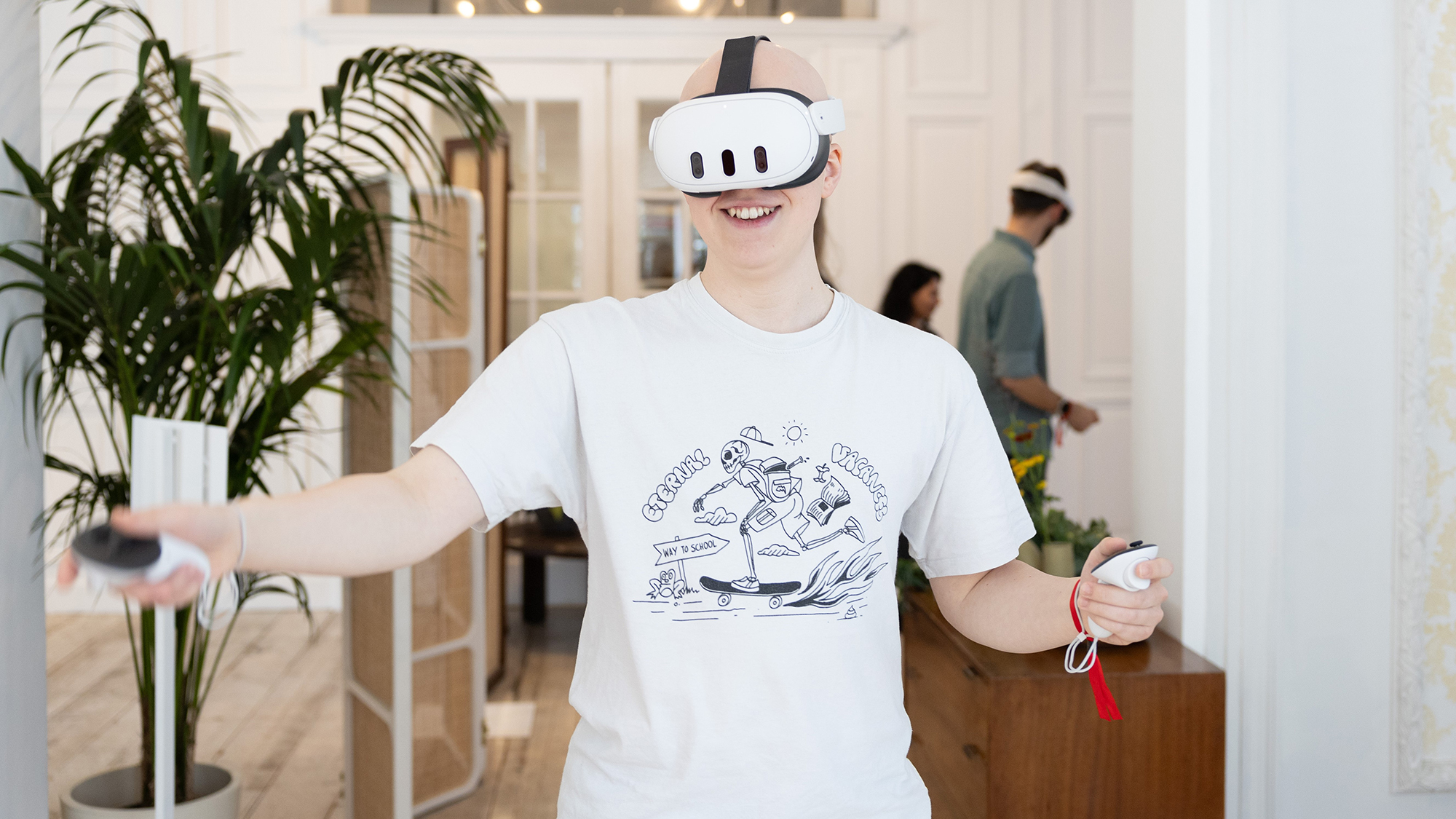
PSVR 2 is such a fantastic bit of kit. Sony’s proprietary PlayStation 5 VR headset offers impressive specs and blissful ease of use, especially compared to its PlayStation 4 predecessor which featured uncomfortably low resolution and an absolute mess of cables. By comparison, PSVR 2 is a massive improvement… in every way but one. Its software library.
That may sound at odds with what we saw at the headset’s launch in February 2023. PSVR 2’s launch lineup featured more than 30 games. Complementary VR modes for Resident Evil Village and Gran Turismo 7 helped, too. But the vast majority of these games weren’t anything you couldn’t already get on cheaper Quest and Steam VR-compatible headsets.
Outside of the genuinely fantastic Horizon: Call of the Mountain, PSVR 2 wasn’t really able to wow anybody beyond enthusiast circles at launch and soon after. That wasn’t helped by the price point; a frankly eye-watering $549 / £529 / AU$879 with no pack-in games and the requirement of owning a PS5, too. It didn’t look good then and it certainly doesn’t now, as a slow trickle of releases (and the absence of some high-profile ones) makes it look like PSVR 2 may have a relatively short shelf life.
Missed opportunities

While I want to love PSVR 2 and use it more often, the reality is there just aren't that many reasons to. Exclusive games are particularly rare. Beyond Horizon: Call of the Mountain, you’ve got The Dark Pictures: Switchback VR, C-Smash VRS and Before Your Eyes as VR experiences you can only get on Sony’s headset. Another announced exclusive, Aces of Thunder, is yet to be released.
It doesn’t help that, unlike with the first PlayStation VR headset on PS4, Sony has elected to not feature PSVR 2 games in its PS Plus game library. I’ve argued before as to how Sony has missed an open goal here, as a free VR game or two every month would make that price point a little easier to stomach. But at the time of writing, this just hasn’t been the case.
Furthermore, some pretty high-profile VR games are launching for Meta Quest and Steam VR headsets, but not PSVR 2. Notable examples here include Sniper Elite VR: Winter Warrior, Powerwash Simulator VR, and EA Sports WRC’s upcoming VR mode. The latter two especially hurt, as I’m already a huge fan of both games and would love the chance to play them on PSVR 2.
Now, it’s not all terrible news. The Resident Evil 4 remake’s PSVR 2-exclusive mode - which features the entire campaign - is launching on December 8. Enhance’s superbly quirky Humanity is also playable in VR. Additionally, developer Vertigo Games is doing a fine job supporting the headset with recent releases like Arizona Sunshine 2 and The 7th Guest VR. There is life in the headset yet I worry it may be a case of too little, too late. And that’s becoming more of a reality thanks to the launch of the Meta Quest 3.
Getting Meta

When it comes to price-versus-performance, the Meta Quest 3 is the best VR headset on the market right now. Its 128GB model going for $499.99 / £479.99 / AU$799.99 comfortably undercuts PSVR 2. Still pricey, certainly, but it’s got two major perks going for it. It’s entirely standalone, meaning it doesn’t require a console or a PC to function. Secondly, it’s compatible with all games released for prior headsets like the Meta Quest 2. So if you’re upgrading, your Quest library will be fully intact.
PSVR 2 doesn’t share this perk. It isn’t backwards compatible with original PlayStation VR games (what a fantastic update that would make, by the way). It can’t be used in the absence of a PS5. And there’s no PC support at all, meaning it can’t be used as a replacement for older, even pricier headsets like the Valve Index. That last point I do consider to be quite odd; Sony has begun to really embrace PC support with several of the best PS5 games and PS5 exclusives making the jump to Steam. Why not have a little hardware parity thereby making PSVR 2 usable with some Steam VR titles like Half-Life: Alyx?
It’s hard not to draw parallels with the PS Vita when looking at the state of PSVR 2. Both are excellent pieces of hardware that could've stood to be competitive in their respective spaces. But ultimately, in both cases, Sony botched pricing and failed to keep up with meaningful software support. As a result, the Vita was entirely consumed by the might of the Nintendo 3DS, and it’s looking like that’s happening again with PSVR 2 versus Meta Quest 3.
At the end of the day, I’d love nothing more than for Sony to prove me wrong. I want PSVR 2 to succeed; it shows that console-based virtual reality gaming has the potential to be a superb experience. And if the next few years are laced with compelling PSVR 2 exclusives (and a price drop, because it really does need one) then I’d feel a lot more confident about the headset’s future. As it stands, though, mustering said confidence is really, really difficult.
If you do own a PSVR 2, you may want to check out our guides to the best PSVR 2 games and best PSVR 2 accessories to enhance your experience even further.







